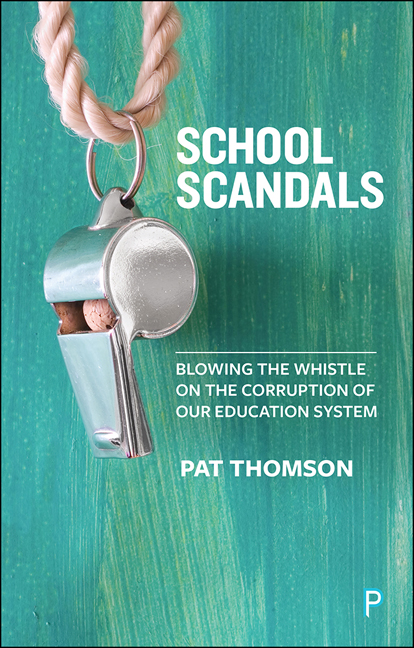Book contents
- Frontmatter
- Dedication
- Contents
- List of Tables and Boxes
- Glossary
- Acknowledgements
- Preface
- 1 A Book about Corruption in Schools
- 2 A Scandalous Schooling Muddle
- 3 Reforming Public Infrastructure
- 4 Costly Measures
- 5 Market Mentalities and Malpractices
- 6 The Effects of Effectiveness
- 7 Secrecy, lies and Gaming
- 8 Rebuilding Organisational Infrastructure
- 9 A Public Good Agenda for Change
- Notes
- Bibliography
- Index
8 - Rebuilding Organisational Infrastructure
Published online by Cambridge University Press: 25 February 2021
- Frontmatter
- Dedication
- Contents
- List of Tables and Boxes
- Glossary
- Acknowledgements
- Preface
- 1 A Book about Corruption in Schools
- 2 A Scandalous Schooling Muddle
- 3 Reforming Public Infrastructure
- 4 Costly Measures
- 5 Market Mentalities and Malpractices
- 6 The Effects of Effectiveness
- 7 Secrecy, lies and Gaming
- 8 Rebuilding Organisational Infrastructure
- 9 A Public Good Agenda for Change
- Notes
- Bibliography
- Index
Summary
Home education rises, with schools left to ‘pick up pieces’
Schools Week, 7 July 2017Our education system isn't working. It's time for a new approach
Huffington Post, 1 December 2017Education reforms causing greater inequality in schools, major study finds
The Independent, 1 July 2018English schools are broken. Only radical action will fix them
The Guardian, 9 August 2018Gove and Johnson make school funding pledges as education becomes key campaign issue
Schools Week, 3 June 2019Corruption, as defined at the start of the book, is understood as the abuse of entrusted power for private gain, where private can mean an individual or an organisation. It can also be understood as the corrosion of government when elected politicians fail to act in the public interest. Corrupted practices include: patronage (where the object of exchange is a vertical move to assure allegiance and loyalty), patrimonialism (the horizontal exchange of resources and favours including cronyism, blurring of public and private in procurement and partial and arbitrary application of rules) and state capture and political particularism (private interests dictate to or unfairly influence governing actors). All of these practices have featured in previous chapters.
So far the book has elaborated on how a particular take on efficiency and effectiveness produces instances of individual corrupt behaviours within the English school system, particularly fraud, procurement malpractice and cheating/lying. But, I argue, there are many more examples of corrupted practices – off-rolling, gaming, excessive remuneration, secrecy, teaching to the test, toxic management and so on. The case made is that corrupted practices are a result of an economistic (calculating and competitive) logic materialised in the FPP organisational structure. I also suggest that interventions intended to produce more efficiency and effectiveness may in fact sometimes do the opposite.
The previous chapters, taken together, indicate strongly that the education system lacks a structure and culture which supports integrity, even though the majority of people within it do generally act ethically. Schools largely remain principled and dedicated to the interests of children and young people because of the personal commitments of staff.
- Type
- Chapter
- Information
- School ScandalsBlowing the Whistle on the Corruption of Our Education System, pp. 173 - 192Publisher: Bristol University PressPrint publication year: 2020



